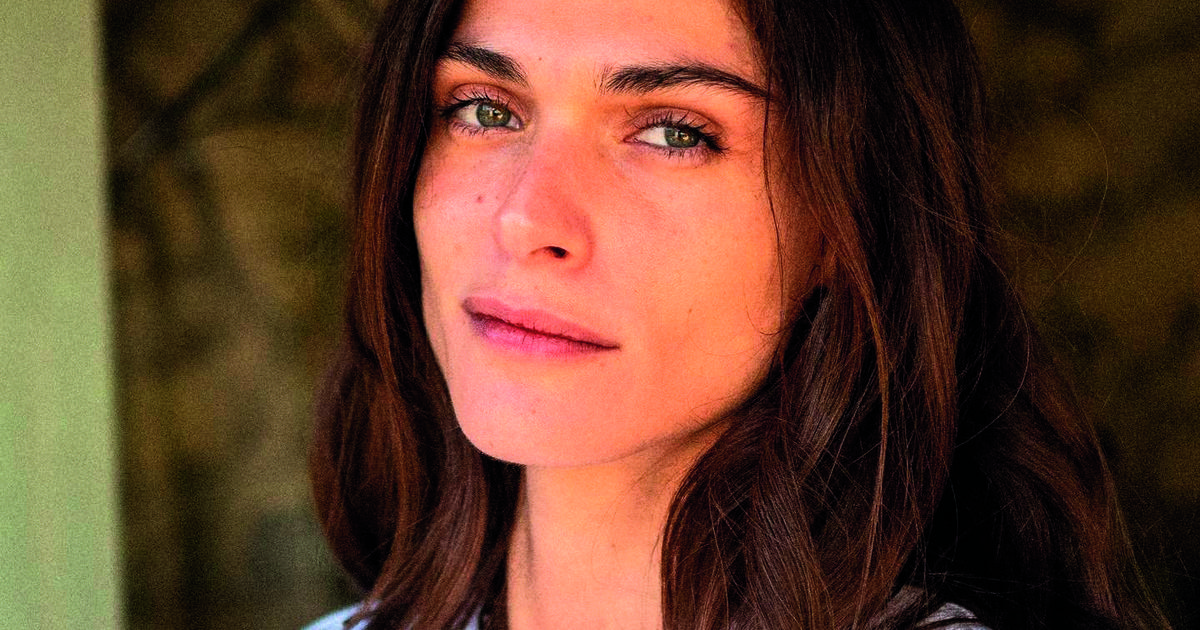Summer is far behind us, despite the fact that a few weeks ago we were enjoying a well-deserved vacation.
The inevitable and necessary routine makes everything very far away.
Even so, there were several events that made me reflect deeply during that time and that subsequently encouraged me to write this article.
One of them is the one that I will describe below.
More information
Helicopter parents raise disabled and dependent children
11 steps so that your child is not an overprotected child
It was 12 noon when I was going with my children to a park that was close to the house where we were spending a few days off. Upon arrival, we met four small children in the aforementioned park. I see a father and an old person sitting on the bench, doing their things, while the little ones play. As I am pushing my children on the swing, I begin to conjecture about the relationships between the adults and the children in the park. Who are the grandfather's grandchildren? And the father's children? In a few minutes, everyone being very entertained, the children on the swings and I looking for kinship, the grandfather leaves with his granddaughter and the father with his son. But ... If there are two small children who have no one to refer to! Are alone. The boy must be about three years old and the girl about five. I approach them,between surprised and overwhelmed, and asked: "Where are your parents?". The older girl tells me very calmly: "They are at home." The park is just two meters from a road where cars pass. I miss an adult who is present with them.
This situation gave me a lot to think about. Throughout the summer I ran into other very similar situations in which the children were alone. Without any adult who, even from a distance, supervises the minors. In addition, it coincided with the fact that during the weeks of vacation I was reading the magnificent book by Daniel Siegel and Tina Payne Bryson entitled
The Power of Presence
, which I not only recommend with my eyes closed, but also invited me to continue reflecting on what that he saw in relation to childhood.
Few have the doubt that raising our children today is a very complex task for many reasons. Long school and work days, high demands, extracurricular activities, rush, stress and technological devices are some reasons that lead us to consider parenting, sometimes, as a risky activity. Society pushes us to be perfect and to perform above our possibilities in all areas, but above all, when it comes to work and childcare. The truth is that parents and adults who surround children must be present, something that does not always happen.
The objective of this article is not to blame or make anyone feel bad, but rather to describe an increasingly frequent and worrying situation. Parents are never guilty of raising our children, because we do everything in our power with our best intention, but we do have to take responsibility and take responsibility for what happens and its consequences. I will always defend that parents are also victims of the system and that we do, only what we can. Nothing more and nothing less.
Being present for our children implies not only being physically with them, but it goes further; it is about seeing, monitoring and connecting with them and their mental and emotional states. It is not enough to be physically present. Evolutionary development studies conclude that one of the best predictors of happiness and emotional balance for our children is whether they have at least one person present for him or her. The fact that a child has a person present, connecting with his emotional needs and protecting him when he needs it, will have as a consequence that he will be a self-confident adult, with critical thinking and with the ability to properly manage his emotions and impulses . If we want our children to be safe people, we must first protect them.That is why it is so urgent and necessary to protect children.
Children who feel protected, who are not overprotected, will have established the pillars of what we know as
secure attachment
. If we protect children, we will be giving them the possibility and the confidence to explore the world around them, because they know that if something goes wrong or they feel fear, they can always return to their safety zone. Only if we are present and connected with their needs will we have the opportunity to regulate their emotions in the different situations that they may experience. Sometimes we adults can do little to alleviate the sadness or anger that our children are experiencing, but the mere presence of the adult is already reassuring. How important it is to know that, at least, our children will not cry with anger, fear or sadness alone, but that we will be there accompanying and comforting them.
Parents are aware that if we are not perfect, we make mistakes. We do the best we can and know how, but we are wrong and we will be wrong. Nothing happens for not always getting it right, but here we must show our maturity and take responsibility for our actions. For this reason, the key to parenthood is not to be perfect and get to everything, but to be present and to repair the damage we do to our children when we make mistakes. Repairing consists of looking into their eyes, asking for forgiveness and making amends for the damage caused. As we have already mentioned, parents not only have the mission of being a safe base for our children, but also of the springboard from which to jump to explore and investigate everything around us.One of our most relevant functions as parents is to tune in or connect with their affective needs to later respond in a contingent and respectful way to those needs.
The different experiences lived in recent months (years, perhaps) added to the reading of Siegel's essential book, led me to conclude several things:
We live in a world that is increasingly technologically connected and less emotionally and relationally connected.
There are many stimuli and distractions that make it difficult or impossible for us to have time and space to connect with our children.
Scientific studies show that we look less and less in the eye when communicating with others.
The number of hours we dedicate to the use of technological devices (mobile phones, tablets, computers, television, etc.) is increasing exponentially.
There are not a few adults who substitute emotional and time deficiencies for material gifts.
We are immersed in a great crisis of values: immediacy, hyper-demand, lack of respect, lack of empathy, little effort and sacrifice, etc.
All these factors, and many others, make it difficult for us to develop in our children a secure attachment, a good enough self-esteem, capacity for empathy, perseverance, a good capacity for tolerance to frustration, etc.
As Pepa Horno says, "one does not learn to love by loving, but by feeling loved."
Both Siegel's book and what I have been observing in recent years, both on the street and in consultation, led me to try to find a name that would collect everything that I wanted to reflect in this article. Of course, it is not my purpose to judge or make anyone feel bad, I only intend to reflect a reality that is increasingly evident and worrying. The name that I came up with and that aims to summarize everything explained in this article is the
parental absence syndrome
. The lack of an adult presence in the first years of life inevitably has consequences for our minors and young people. There are many causes that can cause our children to not be accompanied as they should be and that there is no adult figure near them. I only pretend that we are aware of this circumstance and that, together, we can remedy it before it is too late. Now, more than ever, let's try to connect with our children, be present and available to them.
Rafa Guerrero
is a psychologist and doctor of Education.
Director of Darwin Psychologists.
Author of the books,
Bonding and autonomy through stories
(2021),
The 4 brains of Arantxa
(2021) and
The child and adolescent brain
(2021), among others
.
You can follow De mamas & de papas on
,
or sign up here to receive
our weekly newsletter
.









